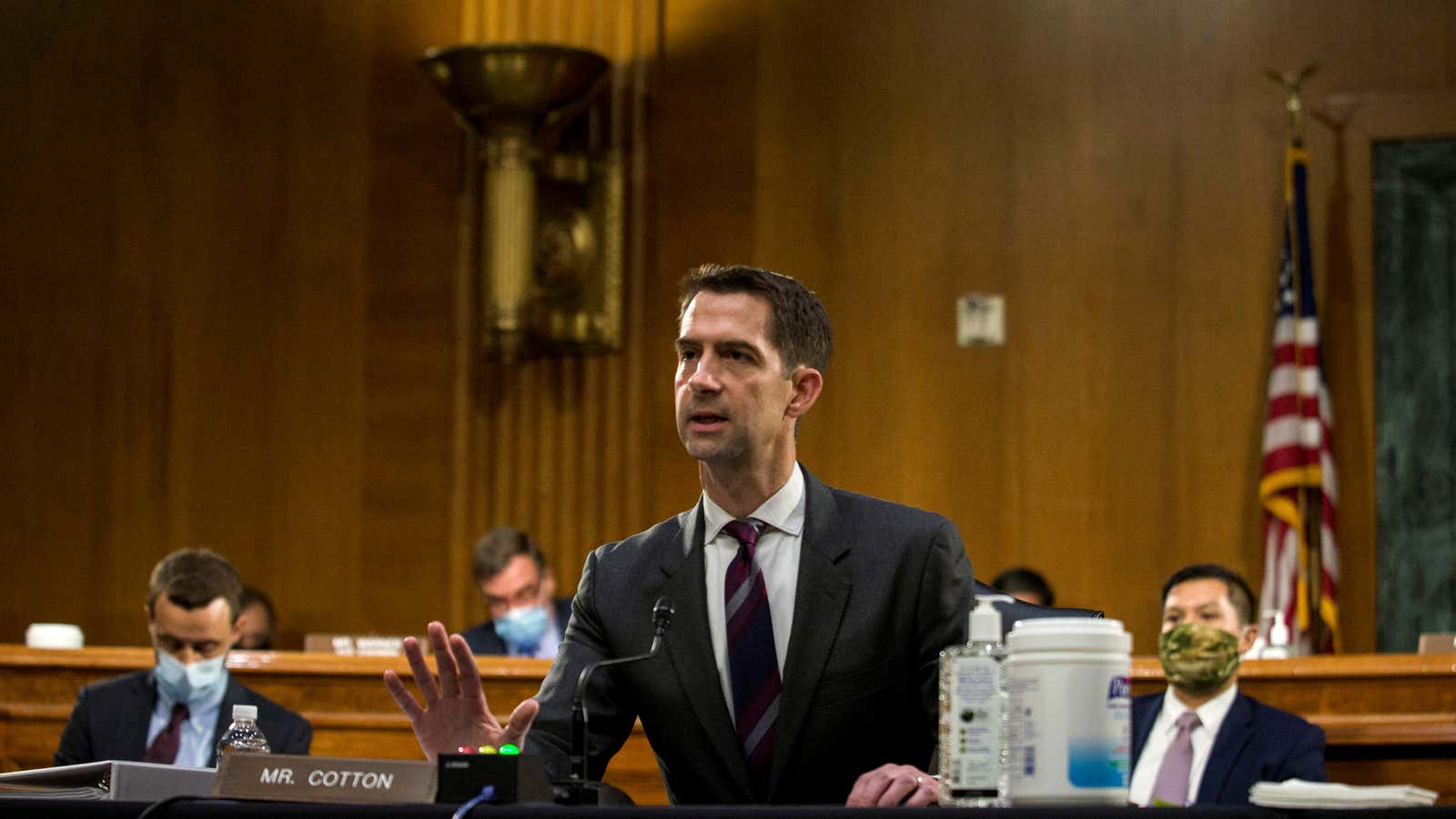Four Republican senators are pressuring US president Donald Trump to further restrict work visas due to coronavirus job losses, arguing foreign students and specialized workers take jobs away from Americans. However, reports show that restrictive immigration policies like this hurt economic growth, especially in jobs and industries that rely on foreign labor.
Senators Tom Cotton of Arkansas, Ted Cruz of Texas, Charles Grassley of Iowa, and Josh Hawley of Missouri submitted a letter today urging the suspension of all new guest worker visas for 60 days, as well as the suspension of other guest worker visas for at least a year. The letter specifically cited the country’s record unemployment, “protecting American workers” and “no reason why unemployed Americans and recent college graduates should have to compete in such a limited job market.” The letter was first reported by Politico.
On April 22, the president issued a proclamation preventing new immigrants from entering the US for 60 days. It allowed immigrants with existing work visas, student visas, and permanent residency (also known as green cards) to continue to enter the country and had numerous exemptions, including for medical staff as well as family members of US citizens. But the remaining guest worker programs not covered “remain a serious threat to the US labor market’s recovery,” the letter said.
Cotton, Cruz, Grassley, and Hawley are requesting the suspension of four major visa categories: the H-2B for non-agricultural seasonal workers, H-1B for specialty occupations, the optional practical training (OPT) extension for international students, and EB-5 for immigrant investors. The OPT extension allows recent foreign undergraduate and graduate students to remain in the US for a year after completing their degrees to do paid work in their designated field. Students with degrees in science, technology, engineering and mathematics can apply for an additional two-year extension.
The letter specifically cites summer resort employment, landscaping, business, technology, and STEM fields; as well as foreign students taking jobs “that would otherwise go to unemployed Americans as our economy recovers”. However, landscaping companies have repeatedly struggled to find and retain American employees to complete long shifts of manual labor and many summer resorts across the country are concerned they might not be able to open for most, if not their entire normal season.
Restrictions on immigration have been a cornerstone of the Trump administration, but studies repeatedly show restrictive immigration policies reduce economic growth and recovery. Two years ago, the Business Roundtable, an association of senior business executives, released a report modeling a scenario involving significant reductions in the issuance of foreign-born student visas and a significant drop in OPT participation by 2020. The negative effects on the US economy included a decline in the country’s gross domestic product “by about a quarter of a percentage point by 2028”, a real fall in hourly wages, as well as a projected loss of 443,000 jobs—including 255,000 positions held by native-born workers—over the next decade.
Even if these additional immigrations restrictions proposed by the senators are not made official, the ongoing discussions about them could still drive potential immigrants and international students away due to the added uncertainty. Eric Fish, a journalist who has researched Chinese international students since 2016, says universities in Canada and the UK have lured a lot of students from the US through immigration-friendly policies, including post-graduate work visas. “If you know that doors are closed to you before you even arrive, that’s a huge mark against that country,” he said in an interview by phone.
